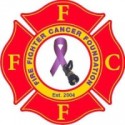From the volunteer fire company perspective, they were getting people in and getting those folks the required training, but then they were not able to actively participate in service delivery. There was a broad-based feeling (revealed when we conducted focus groups with volunteers) that all they ever got to do was “be the backups”.
Read More »Tag Archives: fire service culture
Leading, Guiding and Directing the Next Generation of Firefighters
For young people who've not previously had this degree of structure in their lives, becoming a member of a Fire and EMS organization can be a daunting challenge. We owe it to this next generation of firefighters--and to our organizations--to become better managers who effectively develop and maintain the three sides of the triangle.
Read More »Good Guys and Gals Wear a Mask–And the Rest of Their Gear
I’ve come to realize that firefighters dying in fires is our very own inconvenient truth in the fire service…In spite of all we know about fire, in spite of all of the advances that have been made in technology, in spite of all of the advances in the science of fire prevention and suppression, in spite of the billions of dollars spent—firefighters still die.
Read More »Changes and Trends in the Fire Service
Regardless if the changes arise from our people (generational differences) or new technologies or new information that changes the way we view strategy and tactics, it all comes back to how we lead and manage, doesn’t it?
Read More »What is the Fire Service Culture?
It’s like the weather: everyone talks about it. “It” is the culture of the fire service in the United States of America. We hear it, we see it (in print and on-line), and we talk about it. Lately, what’s most prominent in this communication is: We need to change the fire service culture.
Read More »What’s One More Noise on the Fireground?
First off, a faulty PASS device is UNACCEPTABLE on any fire scene. When firefighters and officers hear a PASS sounding it should ONLY mean that a fellow firefighter is in need of assistance.
Read More »How Good are Your Organizational Risk Reduction Tools?
Think there’s not a need for organizational risk management in Fire and EMS organizations? Take a look at some of the recent “ripped from the headlines” stories about firefighters and officers that have not done much to enhance the reputation and standing of our profession.
Read More »Why this is wrong on many levels
Am I “jumping the gun” on this one? We don’t know all the facts of the case, that’s for sure, but I know one thing from my career in the municipal fire service: You don’t conduct an extensive investigation of an incident, and produce a 200-page report that documents that investigation, because you didn’t have anything better to do.
Read More »A Tale of Customer Care
Every engine, truck and ambulance in the CFEMS response fleet has hotel voucher forms on board that are honored—through prior agreements with the establishment—to provide immediate lodging for one night. The officer on-scene completes the voucher and then a staff officer on scene is tasked with “resident relocation”, i.e., going to the hotel with those folks—and providing transportation if necessary—to ensure that everything goes smoothly.
Read More »Customer Service Skills 4 Firefighters: Part II
When you take action to help the citizen, ask yourself, “If called upon to do, can I honestly say that I would have done the same for any member of my family?”
Read More » Fire & EMS Leader Pro The job of old firefighters is to teach young firefighters how to become old firefighters!
Fire & EMS Leader Pro The job of old firefighters is to teach young firefighters how to become old firefighters!

